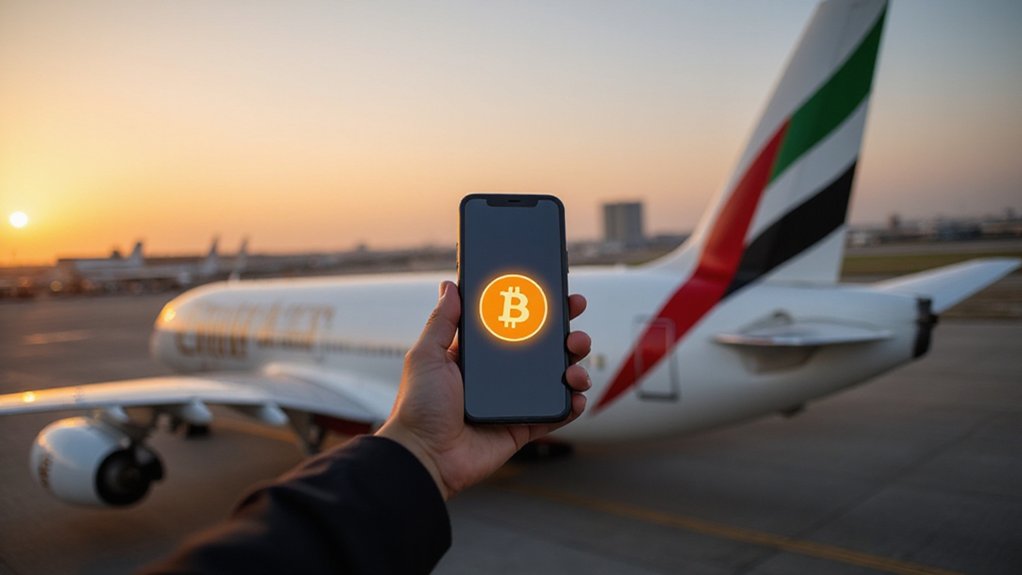Emirates Airline has officially joined the cryptocurrency revolution, signing a memorandum of understanding with Crypto.com that will enable passengers to book flights using Bitcoin, Ethereum, and other digital currencies—a move that positions the Dubai-based carrier as one of the world’s largest airlines to embrace crypto payments.
The partnership, formalized in the presence of Sheikh Ahmed bin Saeed Al Maktoum, CEO and Chairman of Emirates Airline & Group, represents more than mere technological novelty. By integrating Crypto.com Pay into its payment infrastructure, Emirates is targeting the coveted demographic of tech-savvy travelers who view traditional payment rails as antiquated relics of a bygone era.
Emirates strategically courts tech-savvy travelers who dismiss traditional payment methods as obsolete infrastructure from a digital stone age.
The implementation timeline reveals institutional pragmatism beneath the revolutionary veneer. Expected to launch by late 2025 or early 2026, the system will convert cryptocurrencies instantly to UAE Dirhams at point of sale—a shrewd maneuver that captures crypto’s convenience while avoiding the volatility that has sent countless corporate treasurers into premature retirement.
Emirates wisely opted against retaining digital assets on its balance sheet, recognizing that airline operations are sufficiently complex without adding cryptocurrency’s characteristic price gymnastics.
Technical details illuminate the partnership’s sophistication. Customers will access Bitcoin, Ethereum, and anticipated stablecoins through Crypto.com Pay, bypassing third-party exchanges that typically complicate crypto transactions. The system promises faster settlement times and enhanced payment flexibility—assuming, of course, that blockchain networks cooperate during peak booking periods.
The strategic calculus extends beyond payment processing. Emirates aims to strengthen its technological leadership while tapping into the expanding crypto user base, a demographic that presumably appreciates the irony of using decentralized currencies to book flights on centralized airline systems.
The initiative aligns with Dubai’s broader ambitions as a global crypto hub, where regulatory clarity has encouraged traditional industries to experiment with digital assets.
Emirates follows Latvia’s airBaltic in airline crypto adoption, though the Dubai carrier’s scale amplifies the industry implications. The move reflects growing institutional acceptance of cryptocurrencies, transforming digital assets from speculative instruments into practical payment solutions.
Whether this represents genuine financial evolution or elaborate marketing theater remains to be determined, but Emirates has positioned itself strategically for either outcome. The airline’s move comes amid broader institutional investor perspectives showing cautious interest in digital assets, with some funds allocating small portions of portfolios to cryptocurrency investments.








